What are Muscovy Ducks?
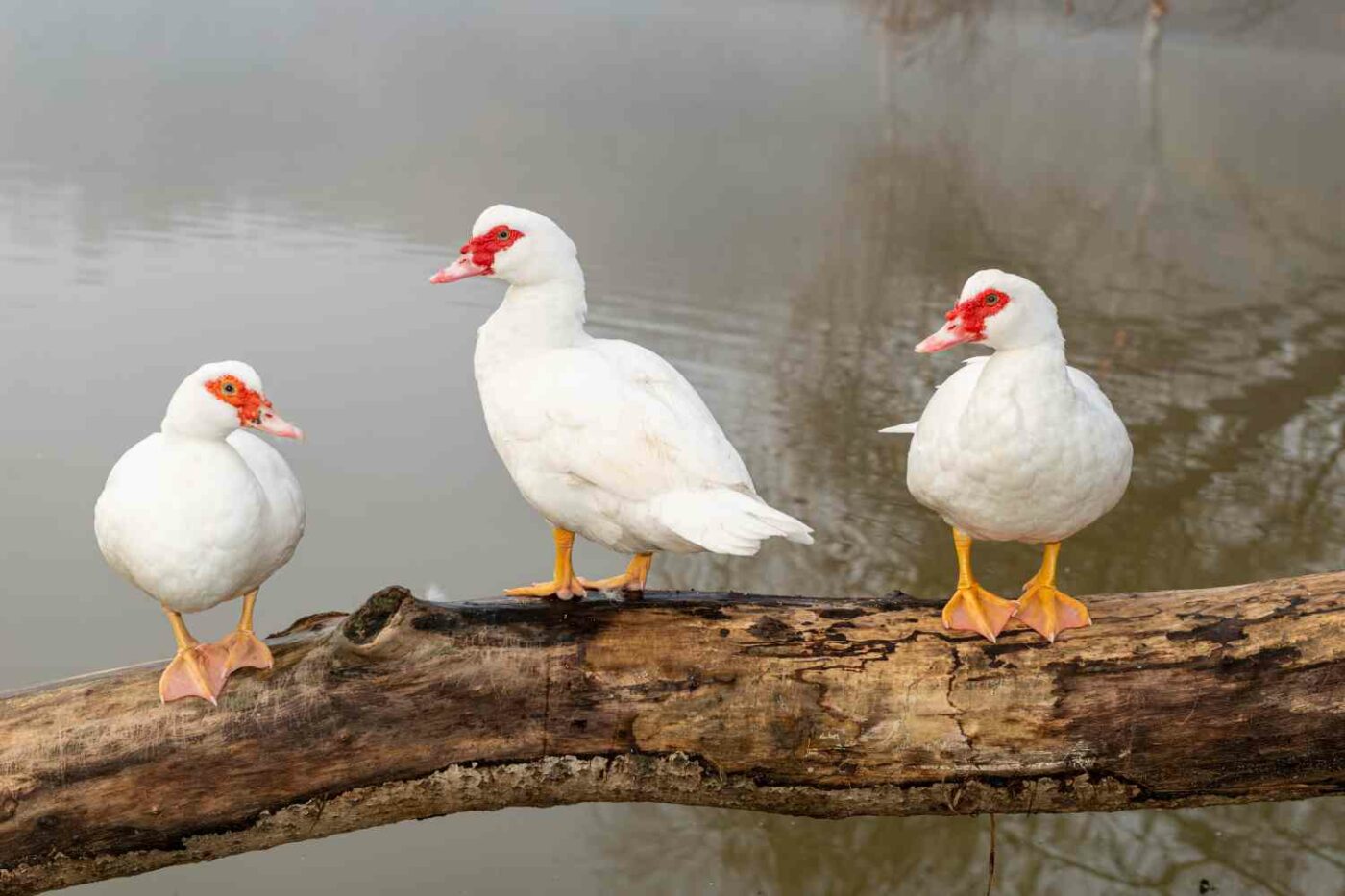
Muscovy Ducks are native to South America, Central America, and Mexico and are the only domestic duck that are not directly descended from the Mallard. Weighing up to 15 pounds, Muscovy Ducks are the largest species of ducks in the world.
The male Muscovy Ducks or also known as the Muscovy Drakes are typically bigger than the female Muscovy Ducks. While a male Muscovy duck can grow up to 15 pounds (6.8 kg) and 34 inches (86 cm) in length, a female Muscovy duck grows up to 9 pounds (4.1 kg) and 25 inches (64 cm) in length in just 12 weeks.
The wingspan of this wild species ranges between 54 inches and 64 inches (137 cm and 152 cm). The average lifespan of Muscovy ducks is between 8-12 years, but if domesticated and well taken care of, then they can live up to 20 years.
The Muscovy duck can lay up to 195 eggs per year over a 40-week season starting in spring. The Muscovy duck egg has a hard shell compared to other ducks and the eggs weigh nearly 3 ounces making them jumbo-sized eggs. Muscovy ducklings start to lay their eggs at about 6 months old, they will continue to lay their eggs for up to 3 years or longer if fed a rich-protein diet.
Their mating season starts in August and ends in May. To increase the production of Muscovy ducks, introduce them to artificial light during winter months. Because of their underdeveloped oil glands, these ducks do not swim. They are mostly raised for their meat which is used for different cooking purposes. Because of their meat quality and size, Muscovy Ducks are very popular in the duck-farming industry. Muscovy Ducks are social and very friendly, they will wag their tail when they’re happy to see you.
Muscovy Duck Characteristics
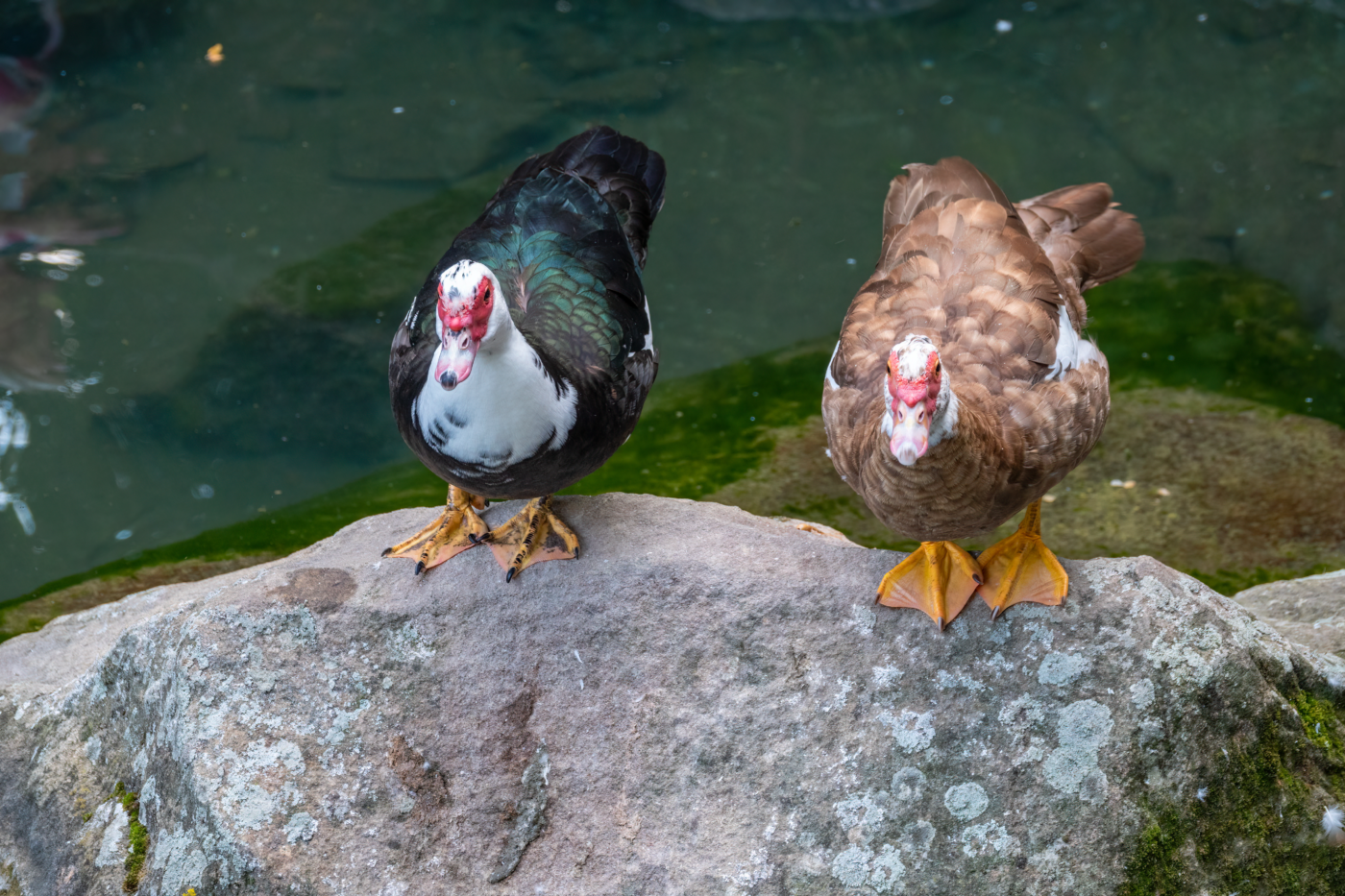
Head: Crest of erectile feathers.
Eyes: Yellow or Brown eyes.
Wingspan: They have up to 64 inches of wingspan.
Bill: Flat yellow, pink, or black.
Caruncles: Males have large and colorful caruncles.
Body: Long, Broad.
Tail: Wide flat tail.
Feathers: Black feathers (iridescent or muted).
Feet: Webbed feet with long claws.
Colors: White, black, blue, green, barred, rippled, and chocolate.
How To Differentiate Between Female And Male Muscovy Duck
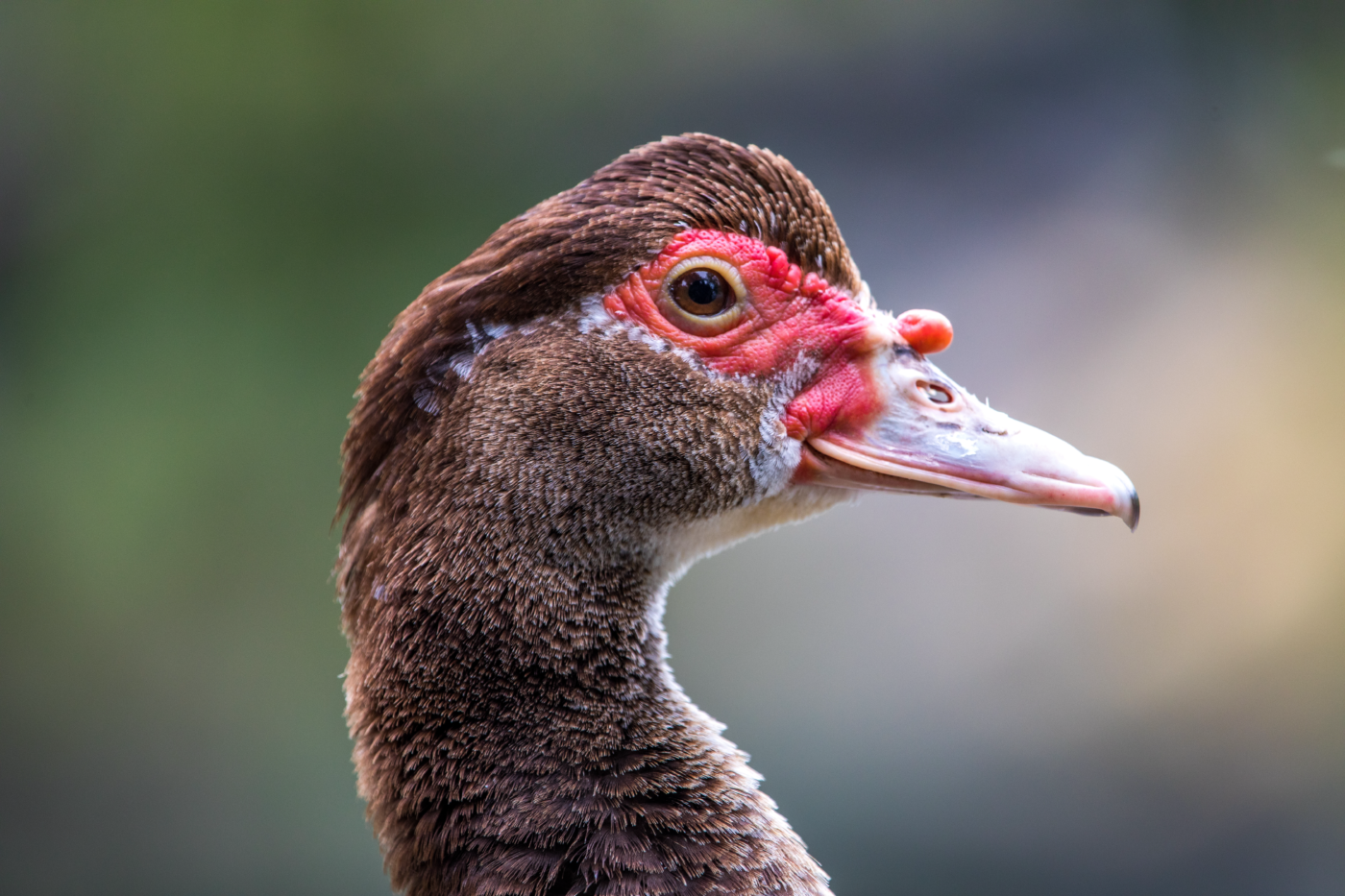
Female Muscovy Ducks
- Feathered faces and smaller masks around their eyes and face.
- Half the size of the male Muscovy Duck.
- They can fly easily like wild ducks.
- When vocalizing, they make a quiet trilling coo sound.
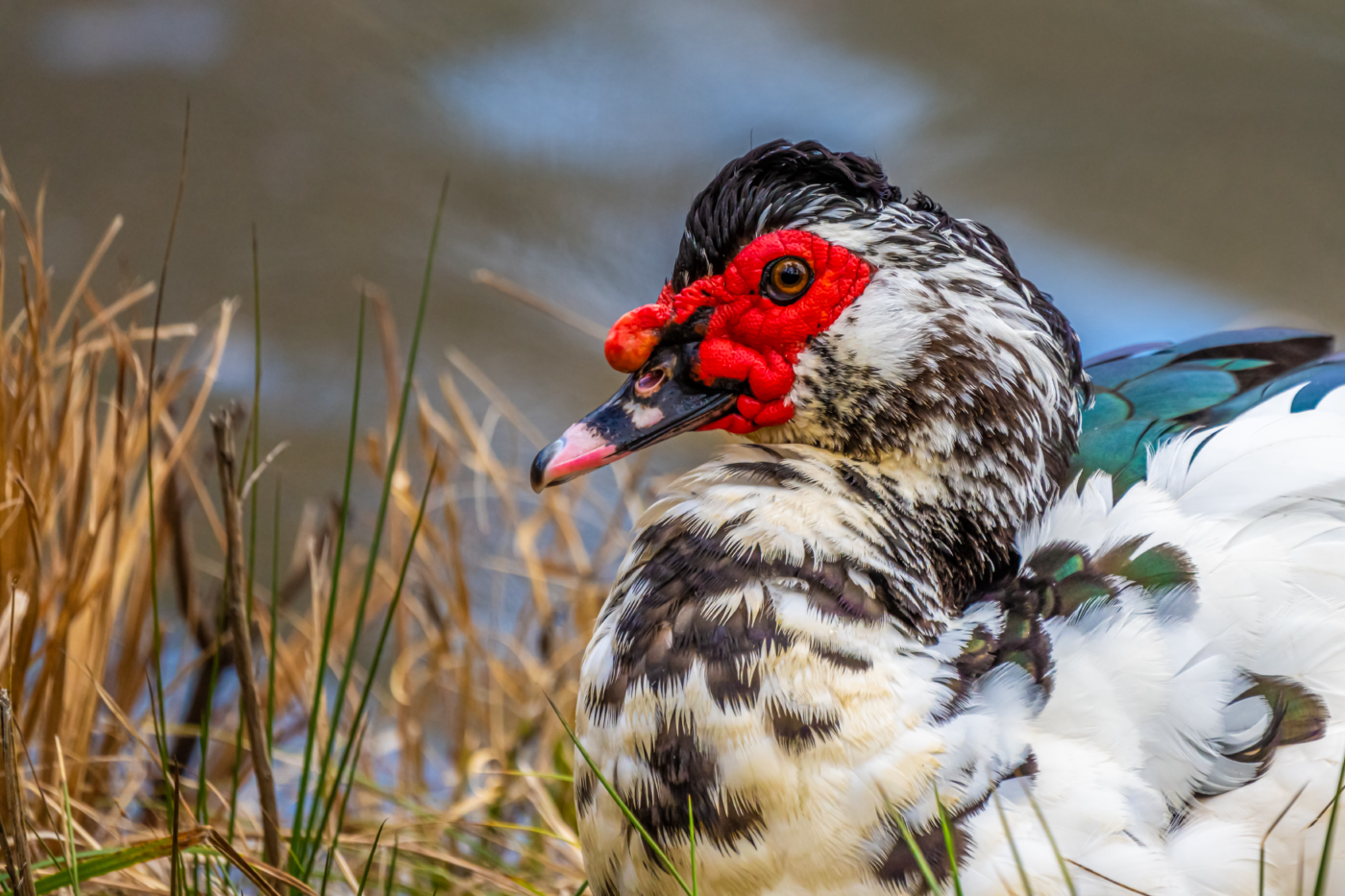
Male Muscovy Ducks
- An array of caruncles around their bills and eyes, extending down to their necks.
- Larger than the female Muscovy Duck.
- Hard for them to fly.
- When vocalizing, they make a breathy hiss, hoarse.
Muscovy Ducks As Pets
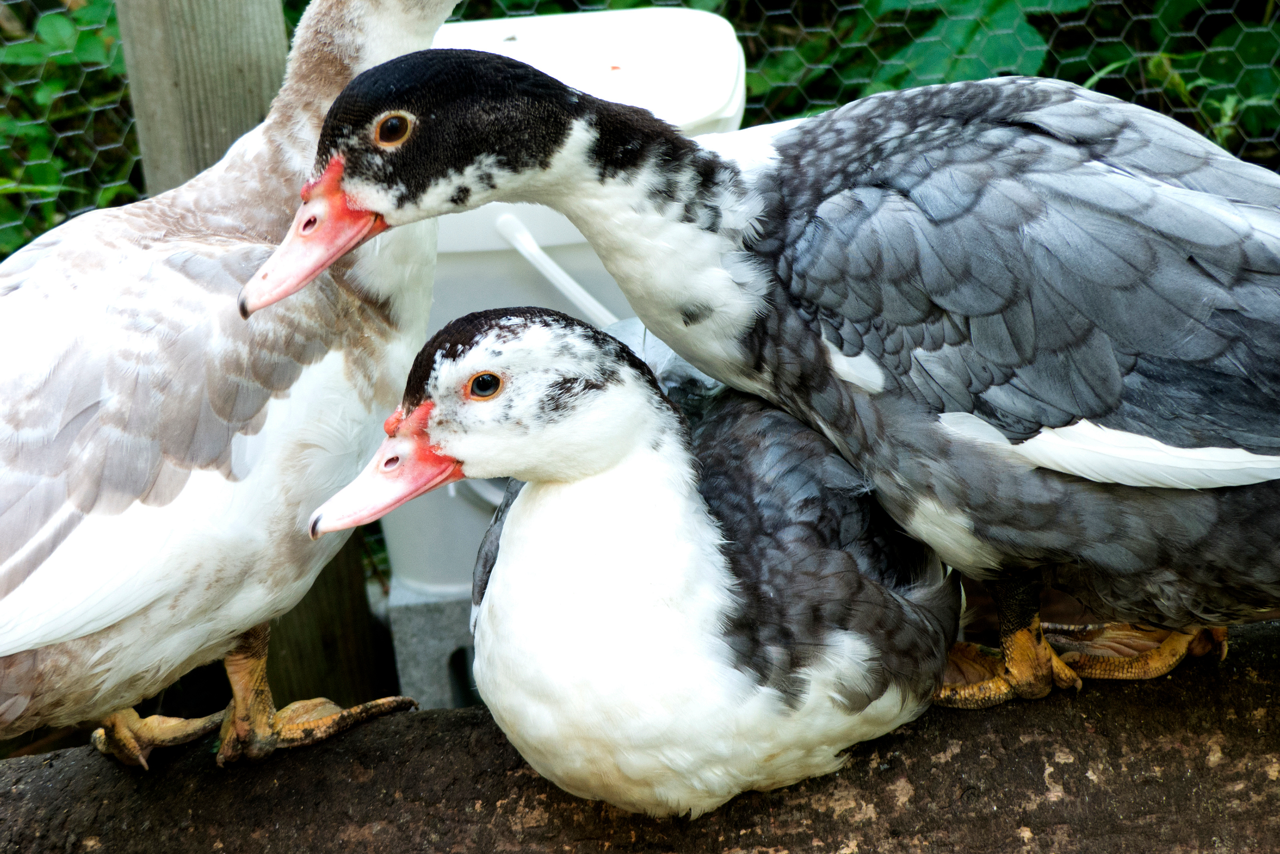
- When buying a Muscovy duck, make sure to buy more than one. This type of duck is a social animal, making it difficult for them to be by themselves. It’s recommended to buy one male Muscovy duck and at least 2-4 females.
- The environment is a big factor when purchasing Muscovy ducks. They are sensitive to cold weather, so they need to be kept in a warm environment. Ducklings, especially when the mom isn’t around, need a warmer place because they aren’t old enough to generate their own heat.
- Muscovy Ducks are easy to take care of as pets. They eat almost anything from small fish, termites, millipedes, small reptiles, insects, grass, grains, and plants. They will help with pest control.
- Muscovy ducks are covered with waterproof feathers that help them stay insulated when they are in the water.
- Muscovy ducks are often preyed on by dogs, foxes, raccoons, opossums, and skunks. They are also preyed on by other birds such as owls.
Muscovy Duck Hatching
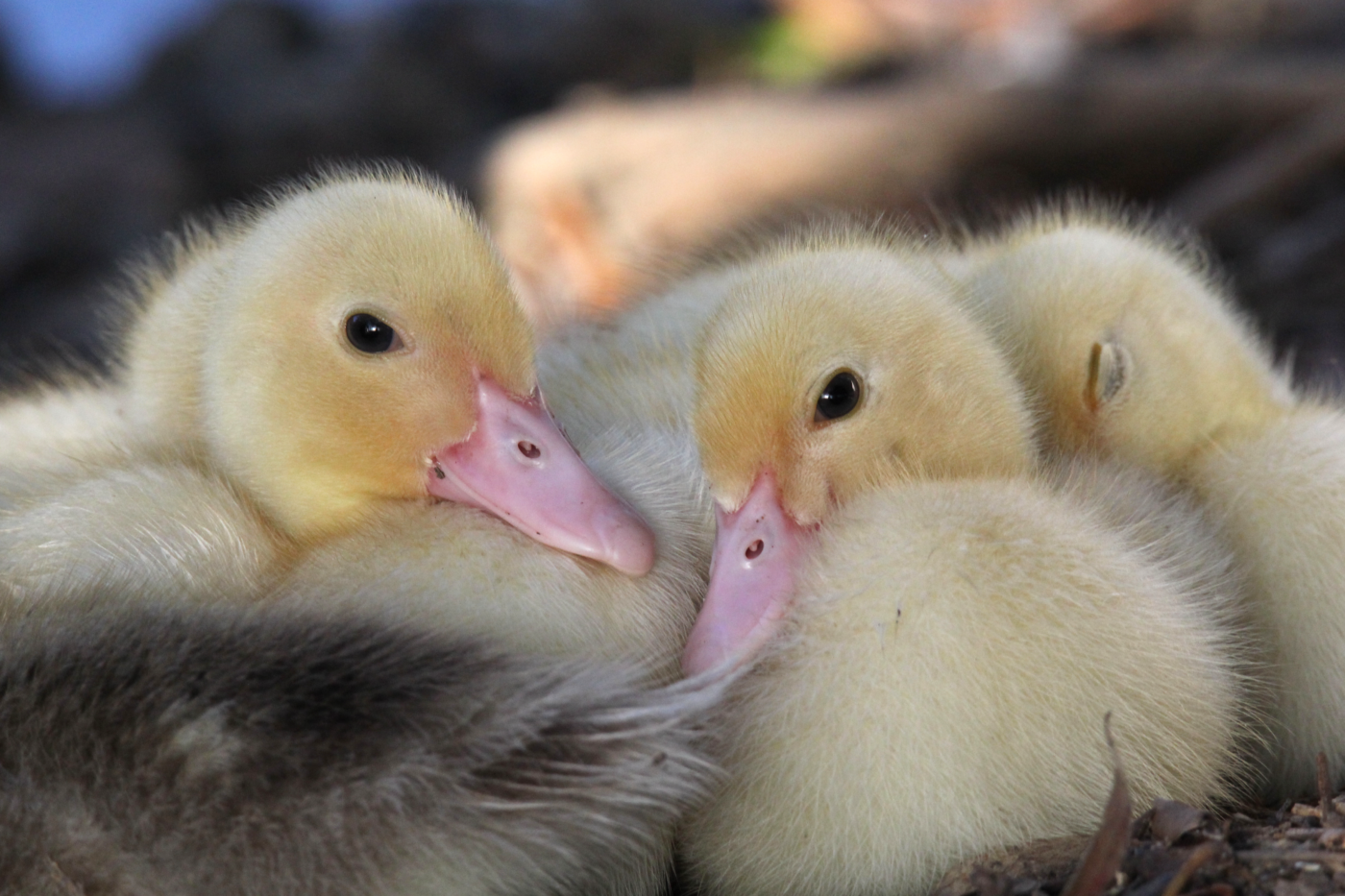
Muscovy duck eggs need about 35 days to hatch after setting. After the first hatching, it takes up to 24 hours for the Muscovy ducklings to come out of their eggshells. They like to be around their mothers for the first 10 to 12 weeks for warmth. Female Muscovy ducks are overly protective of their ducklings from predators and other threats.
Muscovy Duck Vs. Normal Duck
| Duck Type | Muscovy Ducks | Normal Ducks |
| Incubation Period | 35 Days | 28 Days |
| Eggs Size | 2.7 oz ‘Jumbo’ Size | 2.5 oz |
| Egg color | Cream or White | White |
Are Muscovy Ducks Dangerous?
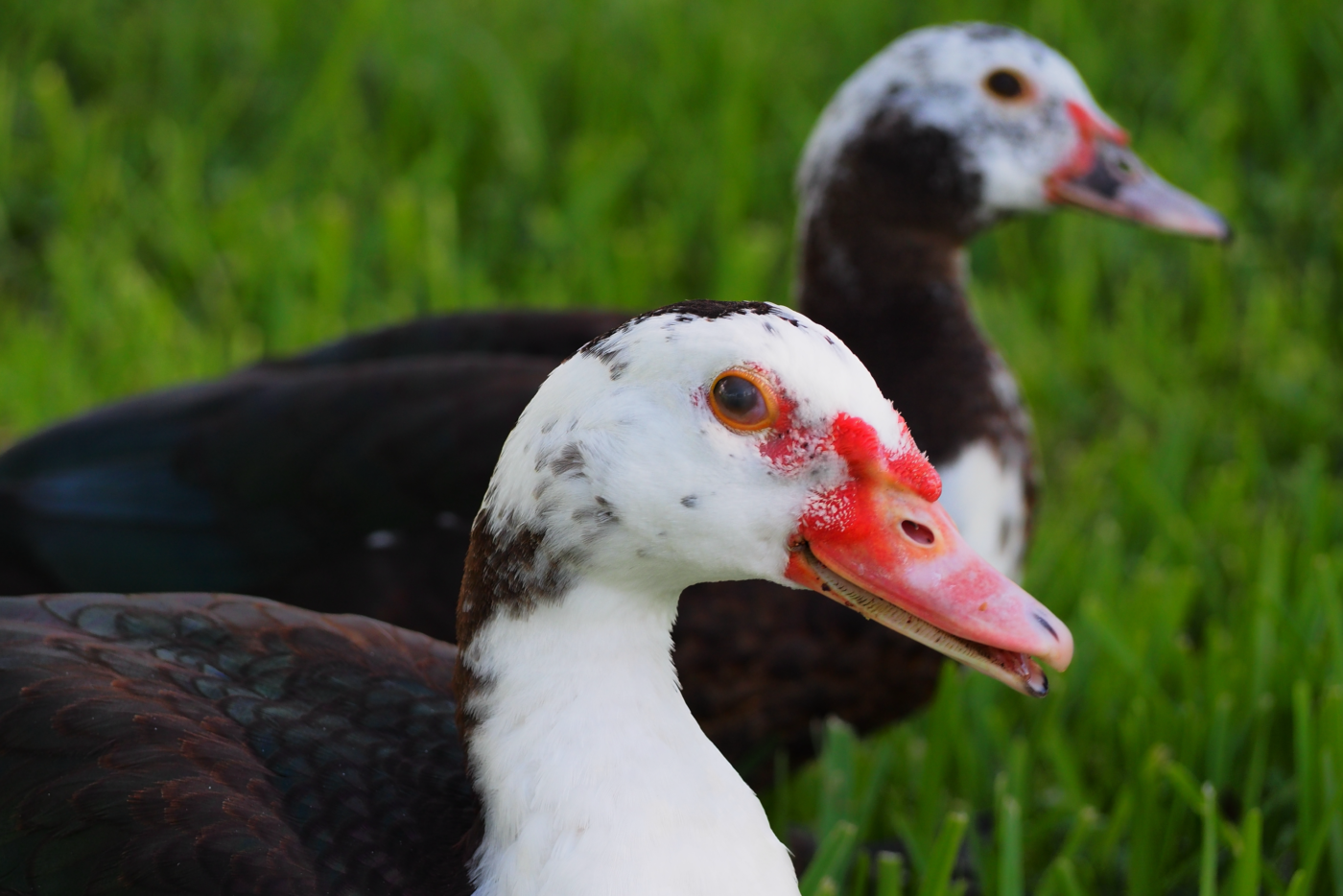
Muscovies are friendly with distinct characteristics. Because of their friendly personality, Muscovy ducks wag their tails when they are happy, just like dogs. They are friendly and calm. They are only dangerous when they are competing for resources and space or when threatened. These ducks need a minimum of 4 square feet of space for each duck, on a property no smaller than a quarter acre. When they see a threat, they call out to alarm the others.
Muscovy drakes fight for space more over territories, food, and females. These fights can go on from minutes to hours if none of the drakes win the fight. Muscovy mothers are dangerous when they’re broody. They will fight off predators to protect their eggs and their ducklings. It’s not advised to collect their eggs while they’re around as it can be dangerous
When threatened by predators, they use their wings, claws, and beaks to defend themselves. Because of their size and big claws, they need to be handled with care and a lot of attention to prevent the handler from being harmed. While processing Muscovy ducks make sure you restrain them quickly.
Muscovies are typically quiet, even though they have big flocks. When communicating with the ducklings, the Muscovy moms use low-frequency calls while the male drakes use hissing noises.
Frequently Asked Questions
Q). Does the FWC remove Muscovies?
A). The FWC is not responsible for removing nuisance Muscovy ducks. This can only be done by the landowner or a hired wildlife trapper with permission from the landowner.
Q). Do I need a permit to remove Muscovy ducks from my property?
A). You don’t need a permit to remove them from your property. Make sure you are using humane methods of live capture by using nets or cage traps. Make sure you check your traps every 24 hours and release any non-target species.
Q). Can Muscovy ducks fly?
A). Domesticated Muscovies can fly but it is more difficult for them because of their larger bodies.
Q). Are Muscovies good pets?
A). If raise correctly and cared for, they are great pets.
